Introduction
Welcome to the interesting world of propane fridges! Imagine drinking a cold beverage in the middle of nowhere, far from the convenience of electricity. That’s the wonder of propane refrigeration, the technology that has made off-grid cooling a reality.
Let’s look at the science behind how a propane refrigerator works and keeps your food and drinks cool.
Overview of Propane Refrigeration
Have you ever thought how a refrigerator should function in the absence of energy? That’s where propane refrigeration comes into play.
Unlike traditional refrigerators that rely on electricity, propane refrigerators use fuel to keep your goodies chilled. It’s an excellent alternative for remote cabins, RVs, and houses seeking to reduce their carbon footprint.
What is the Significance of Propane Refrigerator ?
Propane refrigerators are a game changer for people who live off the grid or enjoy exploring the beautiful outdoors. However, their value is not limited to distant locations.
Furthermore, they serve as excellent backup refrigerators during power outages, ensuring that your food remains fresh.
What are the basic components of Propane Refrigerator ?
The magic of propane cooling lies in its simplicity and efficiency. The basic components are like:
- Cooling Unit: The heart of the refrigerator, where the actual cooling happens.
- Propane Burner: Powers the cooling process, replacing the electric compressor in standard units.
- Thermostat: Controls the temperature inside the refrigerator.
How a Propane Refrigerator Works ?
A propane refrigerator uses a unique process known as absorption refrigeration.
- A propane generator generates the energy required to heat a chamber inside the fridge holding ammonia and water.
- When the liquid boils, the ammonia gas rises to a condenser where it is cooled back into a liquid.
- The liquid ammonia is then fed into an evaporator containing hydrogen gas.
- A chemical process that involves hydrogen gas and ammonia absorbs heat. The refrigerator’s inside is cooled by heat that is drawn from the refrigerator box. Thus, heat is removed from the refrigerator instead of cold air being blown in.
- Ammonia is converted back into a gas throughout the reaction, and the mixture of ammonia and hydrogen gas travels to a chamber where it is mixed with water.
The hydrogen gas rises back into the evaporator to be utilized once more, while the ammonia gas dissolves into the water solution and the ammonia and water solution initiates a new cycle.
Propane as a Refrigerant
Propane stands out due to its excellent thermodynamic properties. It’s efficient, environmentally friendlier than many synthetic refrigerants, and performs remarkably well in a wide range of temperatures.
Propane Refrigerators vs Electric Refrigerator
The comparison between propane refrigerators and electric refrigerator are Like :
Energy Efficiency
Propane refrigerators are surprisingly efficient, given that they don’t rely on continuous electrical power. Their efficiency shines in off-grid settings, where conserving energy is key.
Environmental Impact
Using propane, a hydrocarbon, reduces dependence on electricity that might come from non-renewable sources. However, it’s worth noting that propane, while cleaner than many alternatives, does have its own carbon footprint.
Cost and Maintenance
Initial costs for propane fridges are higher, but their long-term operation costs can be lower, especially if you have limited access to electricity. Maintenance-wise, they require regular checks but tend to have a long lifespan with proper care.
Propane Refrigerator Safety and Troubleshooting
If you’re using propane refrigerator, this article give you all detail about safety precaution to follow and procedure to troubleshooting to issues.
Safety Precautions
Using propane requires caution. Ensure proper ventilation to avoid gas buildup and always follow the manufacturer’s guidelines for operation and installation.
Common Issues and Solutions
Propane refrigerators are pretty reliable but watch out for issues like improper cooling or difficulty igniting the propane. Regular cleaning and ensuring the unit is level can solve many common problems.
Will Not Light
Air in the gas line may cause illumination issues during first start-up. It may take several minutes to drain the air from the gas lines while lighting these units, so proceed with patience. The gas orifice hole is very small.
The refrigerator is excessively warm.
The temperature inside the refrigerator might rise for a variety of reasons, like
- The air’s overall temperature rises.
- The humidity rises.
- Door openings due to usage rise filling to overflowing with food.
Refrigerator not cooling at all
- Flame is out. Propane supply is depleted. Wind gust blew the flame out. Faulty thermocouple. Dirty burner.
- Faulty thermostat. Call serviceman to replace.
- Failed cooling unit. Call serviceman to replace.
Exhaust Fumes Smell
Odor from the flue pipe is usually caused by a dirty flame. See the Yellow Flame section and Clean the Burner section.
Future Directions and Innovations
This R&D roadmap focuses on residential appliances like : refrigerator/freezers
Advancements in Propane Refrigeration Technology
Recent years have seen improvements in efficiency and safety features, making propane refrigerators more appealing than ever. Research continues to enhance their performance and environmental footprint.
The Role of Propane Refrigerators in Sustainable Living
As we move towards sustainable living, propane refrigerators play a vital role in off-grid and eco-friendly homes, offering a reliable way to keep our food fresh without heavy reliance on traditional power grids.
Potential Market Trends
Expect to see a growing demand in the recreational vehicle and off-grid living sectors, as more people seek sustainable and independent lifestyles.
Conclusion
Propane refrigerators offer a special fusion of efficiency, technology, and practicality. With their dependable, eco-friendly, and adaptable cooling solution, they serve as a monument to human creativity in a multitude of contexts. Propane refrigeration has a bright future ahead of it in the field of green technology, as the importance of sustainable living only grows.
It’s an amazing tale of creativity and adaptation to follow the development of propane units from the rudimentary, environmentally unfriendly units of the past to the modern, advanced models. It serves as a reminder that sometimes making healthier selections for the environment is just as important as preserving the freshness of our food. Cheers to a future that’s awesome in every way.
Also read – How Does a Microwave Work to Heat Food?
Frequently Asked Questions (FAQs)
How long can a propane refrigerator run on a single tank of propane?
It varies based on the refrigerator size and usage, but typically, a 20-pound tank can last about a month.
What are the environmental impacts of using propane as a refrigerant compared to traditional refrigerants?
Propane is a cleaner option, contributing less to global warming and ozone depletion than many synthetic refrigerants.
Can propane refrigerators be used indoors safely?
Yes, with adequate ventilation and adherence to safety guidelines, propane refrigerators can be used indoors safely.
How do propane refrigerators compare in terms of cost-effectiveness with electric refrigerators?
While the upfront cost is higher, propane refrigerators can be more cost-effective over time, especially in areas with limited access to electricity.
What maintenance is required for a propane refrigerator?
Regular cleaning, ensuring the unit is level, checking gas connections, and periodic professional inspections are key to maintaining a propane refrigerator.
Having any queries? – Do reach us at info@scivoyage.com

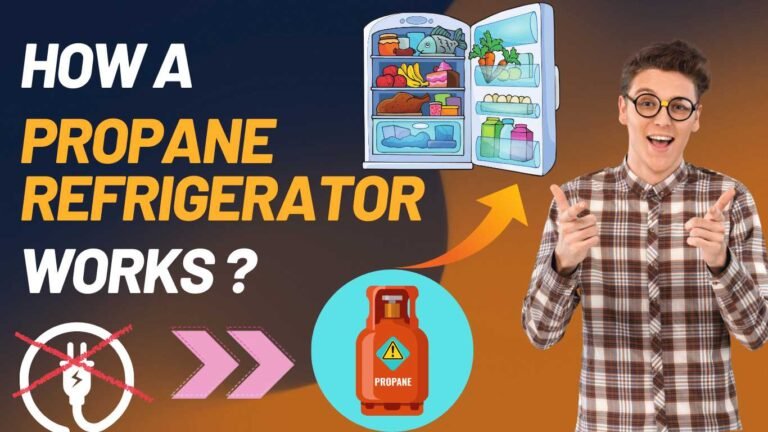
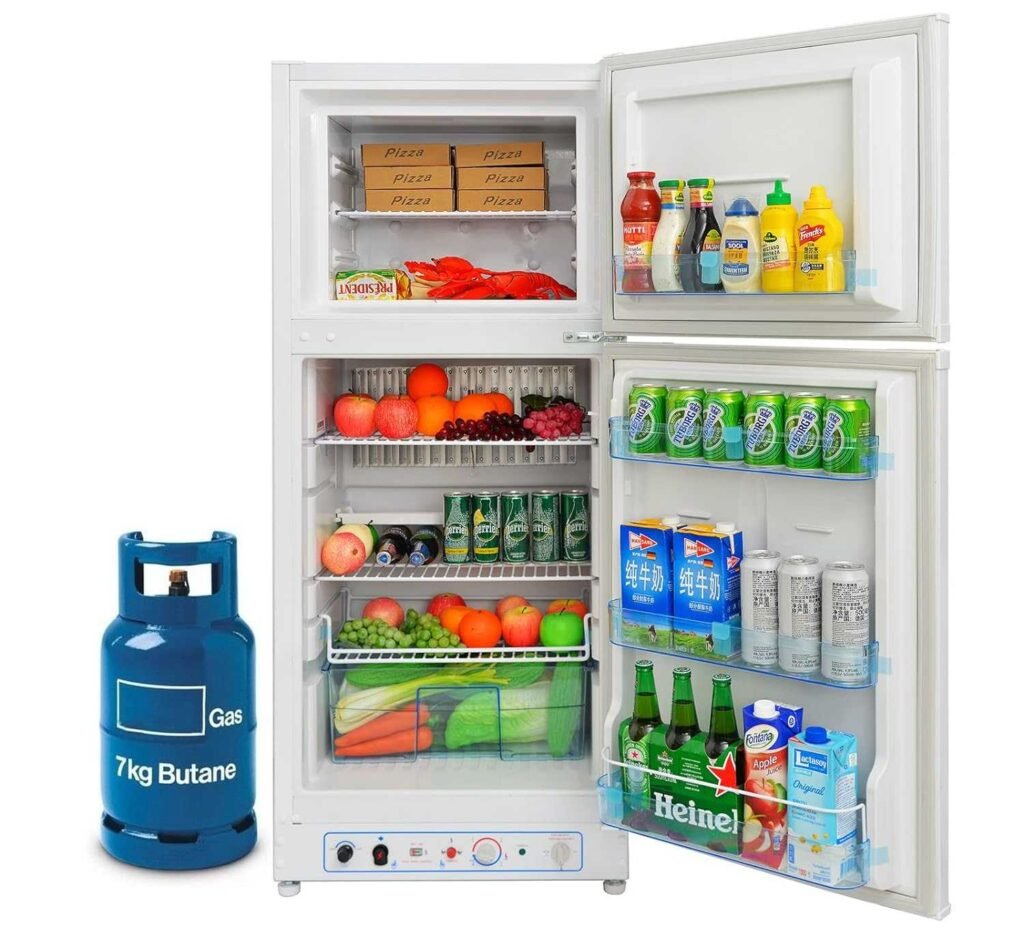
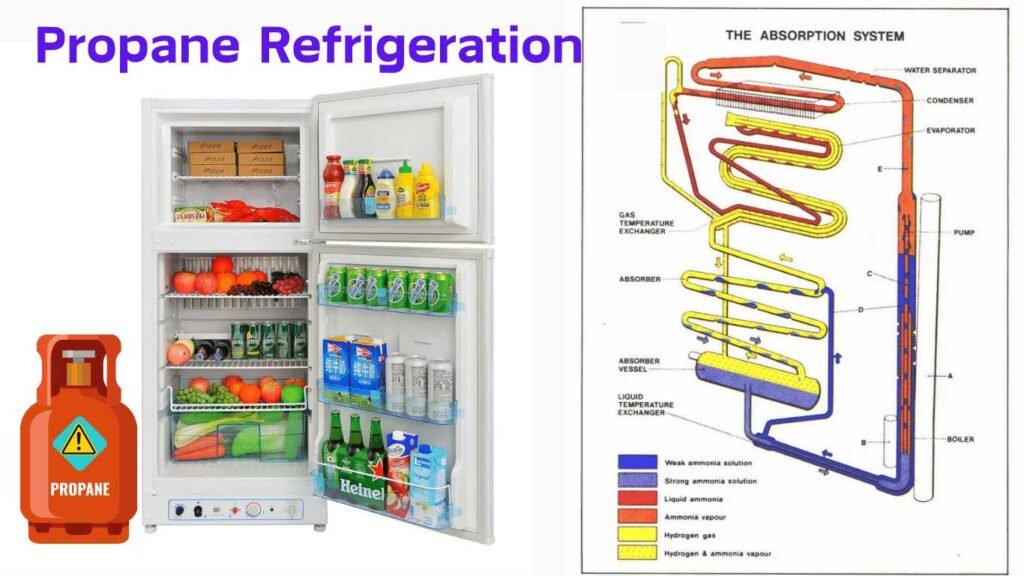
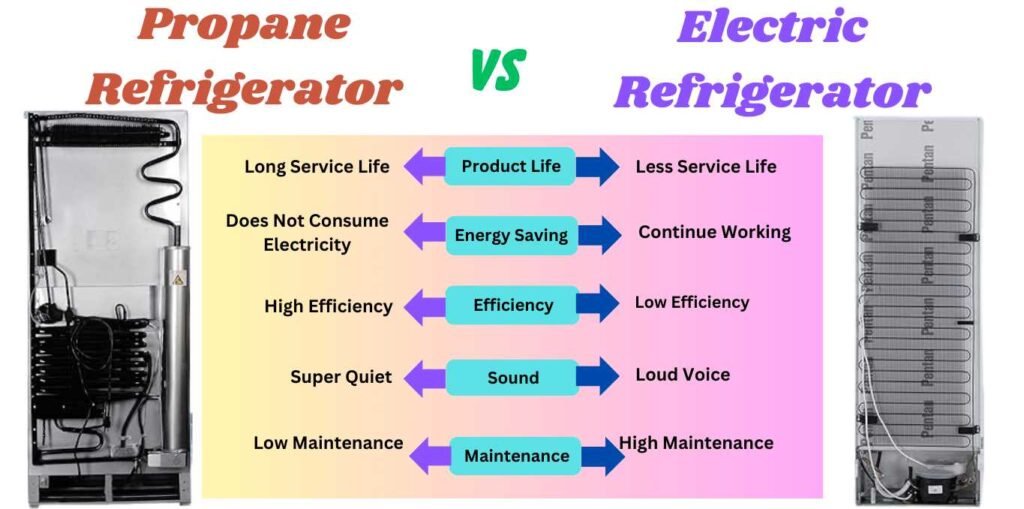







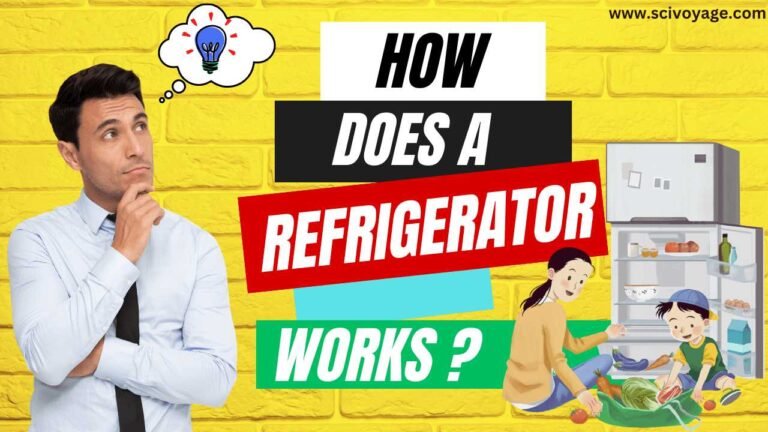
13 thoughts on “How a Propane Refrigerator Works?”
Hello are using WordPress for your blog platform? I’m new to the blog world but I’m trying to get started and create my own. Do you need any html coding knowledge to make your own blog? Any help would be really appreciated!
Can you be more specific about the content of your article? After reading it, I still have some doubts. Hope you can help me.
Thanks for sharing. I read many of your blog posts, cool, your blog is very good.
Can you be more specific about the content of your article? After reading it, I still have some doubts. Hope you can help me.
I don’t think the title of your article matches the content lol. Just kidding, mainly because I had some doubts after reading the article. https://www.binance.com/fr/register?ref=GJY4VW8W
Your article helped me a lot, is there any more related content? Thanks! https://www.binance.com/ph/register?ref=B4EPR6J0
Thank you for your sharing. I am worried that I lack creative ideas. It is your article that makes me full of hope. Thank you. But, I have a question, can you help me?
Your article helped me a lot, is there any more related content? Thanks!
Thanks for sharing. I read many of your blog posts, cool, your blog is very good.
Your point of view caught my eye and was very interesting. Thanks. I have a question for you.
Your article helped me a lot, is there any more related content? Thanks!
Can you be more specific about the content of your article? After reading it, I still have some doubts. Hope you can help me.
Thank you for your sharing. I am worried that I lack creative ideas. It is your article that makes me full of hope. Thank you. But, I have a question, can you help me?